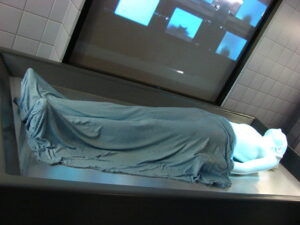Ever wonder what a community college degree is worth? Not surprisingly, it depends upon where you go. Payscale, a big-data website that analyzes compensation information, ranked US community colleges and other institutions that award 2-year degrees based on their alumni salary potential. I don’t mind looking at community colleges in these terms. After all, the proof of the pudding is in the eating, right? There’s a lot that goes into determining salary, and those factors change from area to area. But the Payscale list is still interesting.
Salary results for a WCC Degree
Payscale ranked 1,291 two-year colleges and colleges/universities with two-year programs. The factors Payscale examined included Median Early-career salary; mid-career salary; the percentage of graduates who believed they were doing meaningful work; and the institution’s percentage of STEM graduates.
Among Michigan’s community colleges, none ranked in the survey’s top one-third. Henry Ford College ranked highest and missed the top third group by one ranking point. Half of Michigan’s 28 community colleges ranked in the middle third of community colleges nationwide. Washtenaw Community College was in this group.
Nationally, WCC ranked in the bottom half (742)-for salary potential among community college graduates. Early-career graduates averaged an annual salary of $40,300 and mid-career graduates averaged an annual salary of $58,900. In comparison, the top-rated Michigan community college, Henry Ford, reported that its early-career graduates earned on average $41,700 and mid-career graduates earned $63,000.
Salary potential sheds light on ROI
For a graduate, his or her salary is a good measure of how valuable his or her educational investment is. A comparatively low starting salary handicaps students for their entire careers. While certain career fields – like nursing – tended to land at the top of the list, that wasn’t the only degree program driving salaries. Schools that had higher concentrations of STEM graduates also tended to yield higher starting salaries. That boost carried over into the graduates’ mid-career earnings.
Job satisfaction also plays a role in the value of a degree. Slightly more than half of WCC graduates said that their work “made the world a better place.” Looking at it from the opposite direction, nearly half could not definitively say that they believe their work is meaningful. Ouch.
Not every graduate stays in Washtenaw County, and not every graduate works in their field of study. Recognizing that, it is also probably safe to say that the Payscale ranking points to the need for WCC to focus more fully on educational programs that lead graduates to meaningful, gainful and monetarily rewarding careers. At least it seems to suggest that WCC isn’t very good at doing that right now.
It is possible that WCC’s almost abusive focus on 1-year certificate programs instead of 2-year degrees shows through here. Over time, one-year and sub-one-year certificates have a demonstrably lower positive economic impact on this region. In other words, low-paying jobs don’t really help. The Board of Trustees needs to take that into account when approving future academic programs.
Happy New Year!
Photo Credit: Jeffrey Smith, via Flickr



















